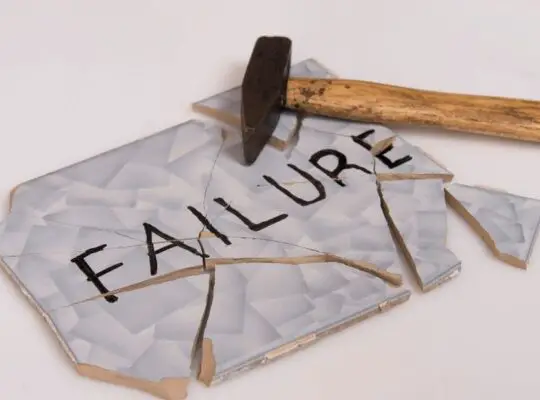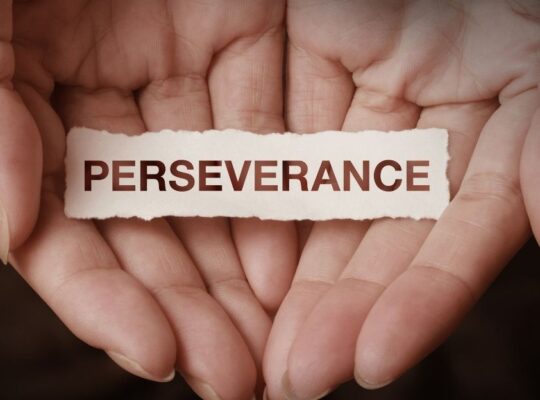Mental toughness is necessary for your overall well-being and mental health. When you have a good sense of mental toughness, you can work through any and all of life’s problems with far more ease.
25 Strategies To Build Mental Toughness
To build a stronger sense of mental toughness within yourself, consider adopting these twenty five strategies within your life.
1| Practice actually feeling and experiencing all your emotions.
Some people make the incorrect assumption that people with mental toughness never experience strong emotions. or, at least, if they do experience strong emotions, they never discuss them or show them to anyone else. This is far from the truth!
People with true mental toughness know the importance of actually feeling and experiencing all of their emotions. If you try to hide or ignore your emotions, they will eventually return with a vengeance.
Rather than allowing your emotions to sit around and simmer, it is much better to explore them, feel them, and then process them. Although you may feel uncomfortable while you are experiencing your emotions in real time, doing so will help you be mentally tougher by moving through them much quicker.
2| Find support in other people who are going through similar life experiences as you.
People who are mentally tough don’t have to suffer through difficult situations alone. In fact, there is a lot of value in finding other people who are experiencing similar life situations as yours.
To build more mental toughness, seek support from people who understand your unique experiences. There are a variety of ways to connect with people through support groups either in person or online in the age of video chatting. Even speaking with close friends and relatives may surprise you – some of the folks you’ve known longest may have experience with the same life situations you are currently going through. Fortify your own sense of mental toughness by finding support in understanding and sympathetic people.
3| Allow yourself to step away from a stressful situation before reacting to it or making a decision about it.
Many people make the mistake of believing that every stressful situation requires an immediate response. Instead of forcing yourself to make a snap decision, allow yourself a moment to step away from a stressful situation before reacting to it or making a decision about it.
This is an excellent way to build mental toughness. At first, it may feel a little scary to walk away from something stressful without making some kind of action or decision to start mitigating it.
However, taking some time to carefully consider your options is a great way to ensure that you are making a smart decision with a calmer, more rational mind. At the end of the experience, you’ll feel mentally tougher for forcing yourself to slow down, calm yourself, and then make a decision rather than immediately jumping into a decision with little to no forethought.
4| Flip the script on your negative thoughts and self-talk.
Do you have a bad habit of talking to yourself negatively? If so, it’s time to build more mental toughness by flipping the script on negative thinking and self-talk.
To do this, build an awareness of when you are having negative thoughts about yourself or speaking to yourself in a negative way. Once you notice that you are being negative towards yourself, stop what you are doing and question your negative thought by looking at its alternative. Consider this example:
“Those people will never like me…I’m not cool enough to even talk to them!”
This is a negative thought. Now you can practice flipping it by looking at an alternative version of it:
“I won’t know if those people will like me if I don’t go introduce myself and start a conversation!”
Using this strategy to flip the script on your negative thinking and self-talk is a great way to build mental toughness. Over time, you will gain more confidence in measuring your negative thinking against reality. More often than not you will realize that your negative thoughts are rooted in worry – not the truth.
5| Practice “yes, and” thinking skills.
Another great way to build more mental toughness is to practice “yes, and” thinking. This method of thinking requires you to consider that two possibilities can be true at the same time – not all life situations are “black and white,” and that is okay!
Consider these examples:
“I failed at something new I tried.”
Yes….and I can try it again tomorrow.
“I am having a bad mental health day.”
Yes….and I can still love myself even though today is hard.
“I get disappointed in the world when I see the news.”
Yes….and I can still do my best to see the good in people.
“Yes, and” thinking is a fantastic way to challenge yourself to accept that two different sides of a thought can coexist, even if they do seem to conflict with each other. Accepting that every situation isn’t perfectly “black and white” can fortify your sense of mental toughness.
6| Focus on aspects of your various life situations that are under your control.
It is a common fact of life that no human being will ever be in total control of everything that happens to them. If we could manage total control over our lives, everything would be much simpler and happier. However, this is never the case – even your acquaintances who seem to have perfect lives will still be faced with setbacks and unexpected surprises during their lives.
When life feels out of control, a good way to build mental toughness is to focus on aspects of your life that are in your control. For example, you can choose to have a positive attitude, even when faced with a bad situation. You can also choose how to react to a bad situation. While you may not be able to stop or prevent a situation from happening, you can do your very best to monitor how you act during it – doing so is a great way to exercise a sense of control.
7| Challenge yourself to take advantage of opportunities to step outside your comfort zone.
Stepping outside of your comfort zone is tough. There is a reason why it is called the “comfort” zone – it’s familiar and comfortable! However, learning and growth rarely ever happen in the comfort zone. It is crucial for mental toughness to get more comfortable with being uncomfortable.
Challenge yourself to take advantage of opportunities to step outside your comfort zone. This could mean trying new restaurants, exploring new places, learning new information, reading new books, and speaking to new people. All of these opportunities and more can help you learn and grow as a human being by stepping outside of your comfort zone. As you practice leaving your comfort zone more and more often, you will build a strong sense of mental toughness.
8| Look for the valuable lesson you can learn from every mistake, failure, or hardship.
Every mistake, failure, and hardship you face in life has the power to teach you a major lesson. While going through these situations is incredibly difficult, it is important to learn how to focus on a small positive that exists in every one of these situations.
To strengthen your sense of mental toughness, practice extracting the valuable lesson you can learn from your hardships. When you pull this Gem of knowledge away from a difficult time, you can take that information with you into the future. That precious information can protect you from future, similar situations, preparing you to be strong again someday.
9| Become a strong and clear communicator.
Good communication is a major pillar of mental toughness. Being able to express yourself clearly and concisely is a fantastic way to build mental toughness. Good communication skills help eliminate any confusion or misunderstanding between you and the other people in your life, which helps you avoid a lot of excess stress. Rather than worrying about whether or not you’re properly understood, you’ll know you adequately expressed your thoughts and feelings.
10| Practice finding the positive side of every negative scenario.
Mentally tough people always look for the positive side of every situation – even the negative ones. Rather than allowing themselves to only see the bad sides of what happens in their lives, they prefer to view their lives through a positive lens.
Sometimes the idea of finding something positive about an overall negative situation is challenging, but there is always something positive on which you can retrain your focus. Learning how to do so is an incredible way to build more mental toughness – finding the positive aspects of a situation, no matter how small they might be, can be the bright spot that helps carry you through what is happening.
11| Question your negative or anxious thoughts.
Mentally tough people don’t let their negative and anxious thoughts control them. Instead of allowing this kind of thinking to “take over” their minds, they hold their negative thoughts accountable by questioning them.
A great way to do this is to hold those negative or anxious thoughts against the truth. Typically, when you compare your negative and anxious thoughts against reality, you’ll notice that those thoughts are typically bred out of fear and worry – they usually don’t have much grounding at all when you are being realistic and honest with yourself.
12| Give yourself permission to forgive yourself and then move on from past mistakes or failures.
Mentally tough people don’t allow past mistakes and failures to hold their lives hostage. If you struggle to let go of old mistakes and failures of the past, consider learning how to forgive yourself so you can move on from those events for a better future.
Forgiving yourself can take time to accomplish and isn’t always easy to do – especially if you’ve been holding on to some of your past mistakes and failures for a long time. However, learning to do so will help remove heavy mental burdens from your shoulders, making it easier to get on with your life.
13| Take good care of your physical needs.
A good diet, sleep routine, and exercise regimen will work wonders for your ability to be mentally tough. Simply put, if your body has physical needs that aren’t being properly met, you will struggle to be mentally tough.
Do not skip out on opportunities to take good care of yourself. Drink plenty of water, get in some enjoyable movement, eat lots of nutritious foods, and get good sleep each night. When you’re feeling your best, you can face strains on your mental health much, much easier and more effectively.
14| Accept criticism as a chance to make some personal improvements.
Mentally tough people don’t allow criticism to ruin their day. Instead, they reframe the way they receive and accept criticism as a chance to make some personal improvements.
Changing the way, you perceive criticism is a valuable way to build more mental toughness. For example, if you receive a comment from your boss about an area where your work performance needs improvement, you can allow it to affect you in one of two ways:
- You can allow the criticism to make you feel terrible about yourself, or
- You can allow the criticism to help direct your future choices at work to help you perform better.
In this scenario, #2 is the obvious choice to not only have a better experience at work, but also to build more mental toughness since it causes you to reframe your thinking about the way you interpret and accept criticism.
15| Engage in mindfulness practices.
Mindfulness is another great strategy for building mental toughness. It’s difficult to stay mentally well if your thoughts are constantly floating back to the past or swimming in worry about the future. Rather than allowing rumination or worry to bother you, you can use mindfulness as a method for keeping yourself checked in to the present moment.
To engage in mindfulness, you can use strategies such as checking in with your five senses and deep breathing exercises throughout the day, as often as needed. These strategies cost nothing and require no special supplies – you can do them anywhere, anytime.
16| Tackle life’s problems one step at a time.
Mentally tough people know the value in taking things at a slow and steady pace. Rather than forcing yourself to rush through a resolution to a problem in life, training yourself to take things one step at a time is an excellent way to build your mental toughness.
When something goes wrong in life, it’s natural to want to resolve the problem as quickly as possible. However, fast resolutions aren’t always the best ones. Force yourself to slow down and handle your problems one step at a time. Every step you make forward – even if they’re small – is a step toward progress and success.
17| Check in with yourself regularly throughout the day.
Make an effort to keep in touch with yourself. This may seem like a silly notion – of course you’re with yourself all day – but are you actually paying close attention to your needs?
Build more mental toughness by checking in with yourself. For example, you can ask yourself questions such as:
- Is it time for me to stop and take a break?
- Do I need to eat something?
- How is my body physically feeling right now?
- Where are my emotions at right now?
- Is anything bothering me or causing me excess stress?
Asking yourself these questions causes you to really pay close attention to what you need, which can work wonders for your overall wellbeing.
18| Listen to your body’s signals and respond to them accordingly.
Your body sends you all sorts of important messages and signals each day – for example, your body will alert you when you need food, water, rest, and more.
To build more mental toughness, make sure you are listening to these signals and responding to them accordingly. Many people will ignore signs of thirst, hunger, tiredness, and more because they’re “too busy” to stop what they are doing to tend to their body’s needs. This is never a good idea.
Instead of making your body wait or go without its basic needs, get into the habit of listening for these specific signals and then honoring them. When your body has everything, it needs to function well, it’s much easier to feel mentally tougher.
19| Start each day with some positive affirmations.
Starting your day with some positive affirmations is a wonderful way to start the day with some mental toughness. the more you use positive affirmations to remind yourself of your good qualities and capabilities, the more you will begin to accept and acknowledge them as the truth about yourself. When you truly believe good things about yourself, you become much more mentally tough.
To use positive affirmations, simply create a phrase or two about yourself that you want to emphasize as truthful. You can create your own set of affirmations, but if you need some inspiration to get started, consider trying some of these examples:
- I am a good person.
- Good things are coming my way.
- I can make smart choices.
- Taking care of myself is a priority.
- My emotions are valid.
- A bad day can’t bring me down.
- I can handle whatever life brings my way.
- I am going to seize the day.
20| Spend as much time around positive, upbeat, and motivated people as possible.
The types of people you spend time with most often will have a huge impact on your overall well-being and attitude. a great way to build mental toughness is to spend more time around positive, upbeat, and motivated people. these people have great attitudes, and when you spend more time around people with these types of positive mindsets, you will likely begin to adopt some of their traits and habits.
On the contrary, if you spend more time with negative, naysaying people, you will likely begin to develop their same negative and pessimistic attitudes. Negativity makes it difficult to feel mentally tough – positivity will help fortify your sense of mental wellbeing.
21| Set personal boundaries with other people and enforce them.
You are at your most mentally tough when you are taking good care of yourself, and a wonderful way to take care of yourself is to set boundaries with other people and enforce them.
Setting boundaries requires you to communicate your feelings, needs, and wishes to other people so they understand your varying comfort levels with different scenarios and subjects. Once you communicate a boundary with someone, enforce it: if they attempt to cross your boundary and make you uncomfortable, call them out on it.
Enforcing boundaries can feel awkward, but it is important to remember that you are doing it to protect your overall wellbeing and mental health. You aren’t setting boundaries to be harsh to other people – you are doing it to keep yourself feeling your best.
22| Limit the amount of time you spend scrolling through social media feeds.
Comparison is often described as the thief of joy. In the age of social media, this common adage has never been truer. To build more mental toughness, consider seriously limiting the amount of time you spend scrolling through your various social media feeds.
When you are viewing social media, you are seeing your friends and families highlight reels. Rarely do people ever post or share information about the tough times they are experiencing semicolon more often than not, they prefer to share pictures and posts about happy times with the world. However, when you’re viewing post after post of jealousy-inducing photos, it’s tough to feel good about yourself in comparison.
By spending more time away from social media, you can build mental toughness by removing this outlet for comparing yourself to others from your focus. Use your time away from social media to focus on your own interests and needs.
23| Use deep breathing techniques to quell anxious and stressful thoughts.
There is a good reason why deep breathing techniques have been a part of meditative practices for thousands of years. if you can control your quickened, uneven breathing when you are feeling anxious or stressed out, you can likely get those feelings under control.
Deep breathing is a great way to improve your mental toughness. Anytime you are feeling anxious or stressed, you can engage in some simple deep breathing exercises by breathing in through your nose, holding your breath for a few moments, and then slowly releasing your breath through your mouth. You can repeat these steps as many times as necessary to get your breathing patterns under control again.
At the end of your deep breathing exercise, you will likely notice that your heart rate has slowed and your muscles feel less tense. A good deep breathing exercise session will help you gather your thoughts, calm down, and return to a comfortable stasis again.
24| Ditch the myth of “multitasking.”
One of the biggest myths that is often perpetuated by the education world and working world is multitasking. Professors, teachers, and supervisors alike all tend to support the idea of tackling multiple tasks at the same time for maximum efficiency.
However, the act of multitasking is a big lie. Trying to focus on more than one task at a time can cause a lot of stress, anxiety, and mistake-making. When you try to spread your mental energy too thin, you are likely to make many mistakes, causing you not only to have to re-do your work, but also feel a lot of unnecessary pressure to perform extremely well in difficult circumstances.
Instead of forcing yourself to attempt multitasking, give yourself permission to focus on one task at a time. Doing so will help you build more mental toughness. You will feel a lot less pressure by only working on a single task at a time. As a bonus, the work you produce will be top quality.
25| Lean into life’s changes with a willingness to try things differently.
You have two choices in life: you can rail against life’s inevitable changes, or you can lean into them. Rather than trying to fight the inevitable change within your life, you can build mental toughness (and save yourself a lot of unnecessary grief) by allowing yourself to approach change with willingness.
Change can be frightening and intimidating, but since change is going to happen regardless of your wants or desires, learning how to approach them with a willingness (or even a sense of adventure or excitement) will make the entire experience far more pleasant.







